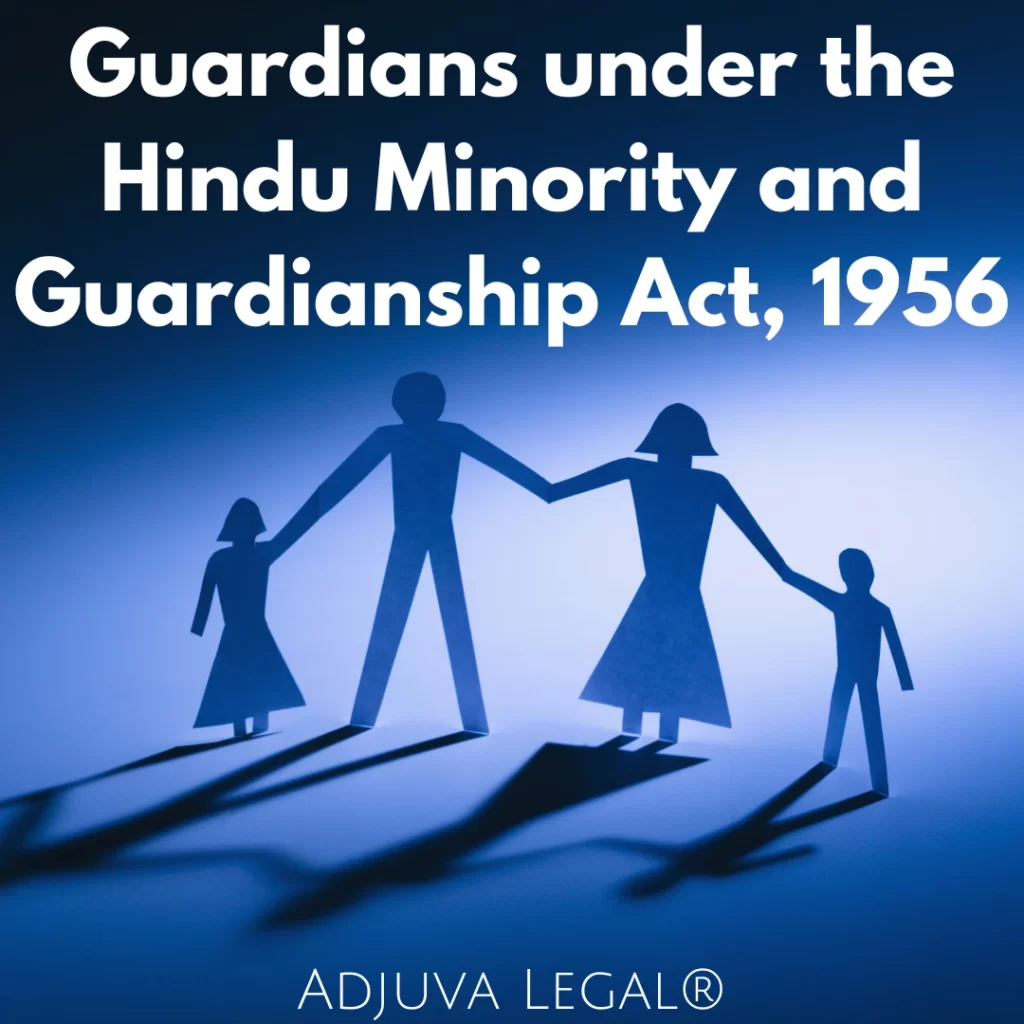The Concept of Guardianship
The phenomenon of guardianship was not rooted in Hindu Law since the beginning. After the reign of the British in India, the concept was sown in the state. The evolution in Hindu Law was established by effectuating the code through enforcing a series of enactments including the Hindu Minority and Guardianship Act, 1956.
The layman world is acquainted with the fact that a guardian is appointed for a person who is incapable of treating himself. Apparently, a minor falls under the ambit of a person requiring patronage for the fulfilment of basic necessities.
Who is a minor?
Sec 3 of the Indian Majority Act, 1875 states, every person domiciled in India shall attain the age of majority upon his completing the age of eighteen years and not before.
Sec 4(b) of the Hindu Minority and Guardian Act, 1956 states, a minor is a person who has not attained the age of 18 years.
Who is a guardian?
A guardian is a person appointed to take due care of the person requiring parentage. He becomes a custodian of the person and his property until the person attains the licit age of majority.
A guardian is supposed to take legal decisions and steps for a minor. A minor person is treated as unfit to take a decision that will legally bind him to adhere to it; hence the guardian takes such decisions on his behalf.
Minor is considered incompetent to enter into a contract as per section 10 of the Indian Contract Act, 1872. Hence, various enactments provide a way to approach the court to appoint a guardian or custodian for the same. Arbitration and Conciliation Act, 1996 also encircles the concept of appointment of a guardian for minors as a part of interim relief under section 9 by the court of law and under section 17 by the arbitral tribunal.
Sec 4 Hindu Minority and Guardianship Act, 1956
(b) “guardian” means a person having the care of the person of a minor or of his property or of both his person and property, and includes—
(i) a natural guardian,
(ii) a guardian appointed by the will of the minor’s father or mother or a testamentary guardian,
(iii) a guardian appointed or declared by a court, and
(iv) a person empowered to act as such by or under any enactment relating to any court of wards;
Who is a Natural Guardian?
Natural Guardian is a person who by birth or by marriage becomes the overseer of the minor child. The word natural itself reflects that the concept does not require any legal hurdle for its satiation.
Section 6 of the Hindu Minority and Guardianship Act of 1956 declares the prominence of a person while considering natural guardianship of a Hindu minor.
The natural guardian of a Hindu minor, in respect of the minor’s person as well as in respect of the minor’s property (excluding his or her undivided interest in the joint family property), are—
(a) in the case of a boy or an unmarried girl—the father, and after him, the mother: the proviso states that mother is a guardian of a child under 5 years of age
(b) in case of an illegitimate boy or an illegitimate unmarried girl—the mother, and after her, the father;
(c) in the case of a married girl—the husband
There are two ways by which a person cannot be entitled to a guardian if he
- Coverts, that means ceases to be Hindu
- He renounces the world.
Who is a Testamentary Guardian?
The word testament refers to an instrument declared as the will of a person. Section 4(b) of the act states the formula for appointing a person as a guardian of a minor under a will.
Section 9 of the Act states,
- Hindu Father may, by will, appoint a person as guardian
- The appointment under sub-section (i) shall have no effect if the father dies before the mother; it can revive after the mother dies without appointing a person as guardian in her own will.
- If the father becomes disentitled to act as a natural guardian of legitimate child, a Hindu woman can appoint a guardian by will.
- He can be guardian of minor’s person or property or both.
- The guardianship will take effect after the death of the father and mother.
- Guardianship of a minor Hindu girl will cease after her marriage.
Who is a De Facto and De Jure Guardian?
A de facto guardian is a person who by reason of concern participates in the welfare of a minor. He voluntarily renders the basic needs to the person requiring them. Moreover, as the word infers he becomes the guardian by the fact of keeping the minor under guardianship, voluntarily.
Section 11 of the Act contains the provision for De facto guardianship. It states that,
De facto guardian not to deal with minor’s property.— no person shall be entitled to dispose of, or deal with, the property of a Hindu minor merely on the ground of his or her being the de facto guardian of the minor.
A de Jure guardian is appointed by the court under 4(b) of the Act. If any court deems fit and required to allot a custodian for a minor’s person or property, it appoints a guardian to take all necessary and due care.
Conclusion
Guardian is the roof for a person incapable of satiating his/her own requirements. The basic requirement consists of food, education, cloths and shelter.
A person becomes legally bound to guard his/her duty by providing such requirements and maintaining the minor.
There are several types of guardians in law including Natural guardians, Testamentary guardians, Legal guardians, De facto guardians, De jure guardians. Furthermore, there is also a category of Ad hoc guardians appointed for a temporary period to look after the minor. Subsequently, all the entire notion is based upon the welfare of a child that is paramount in law.
by Khushi Shukla
Disclaimer: The opinions expressed within this article are the personal opinions of the author. The facts and opinions appearing in the article do not reflect the views of Adjuva Legal and Adjuva Legal does not assume any responsibility or liability for the same.







